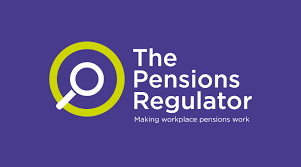Automatic Enrolment
Under current UK law, all employers are required to set up a pension scheme, enrol their eligible employees and make contributions. Automatic Enrolment was introduced in the 2008 Pensions Act and officially began in 2012, with a slow phasing-in process. Under the scheme, employers are expected to complete specific duties, even if they don’t currently have to enrol any of their staff. Therefore, it’s important to follow the guidelines closely and keep up to date with any changes.
Eligibility
Automatic enrolment only applies to specific staff members. To be eligible, an employee must meet two requirements. They must be between the ages of 22 and state pension age and they must earn £833 per month, which averages out to £192 per week. It’s possible that nobody in your employment meets these categories at present and therefore you do not have to make contributions currently, however, there are still other duties to consider.
Duties
Automatic enrolment duties begin on the date that your first employee begins working for you. Whilst this may be the start date, preparations need to be made prior to this so that everything can be set in motion at the right time. For example, employers should choose a specific pension scheme before the start date. Choose a scheme which best fits your company and its staff. It’s also important to ensure the scheme is reputable, for example one that has been independently reviewed or is regulated by the Financial Conduct Authority.
The next duty involves ascertaining which, if any of your staff are eligible for automatic enrolment. Employees who do meet these criteria should be placed into the pension scheme on your duties start date. The first contribution into this pension scheme should happen on the first payday following the duties start date. The payment which is to be paid will vary but you must at least pay the minimum amount, as agreed between yourself and the pension provider.
Within six weeks following your duties start date, you are required to write to all of your employees and explain how the enrolment process applies to them.
The final duty involves a declaration of compliance- basically contacting the Pensions Regulator and confirming that you have completed all of your necessary duties. This declaration needs to be completed within five months of your duties start date, otherwise you could face penalties. Your declaration should be started after you receive a letter, reminding you of your deadline. The declaration itself is completed using an online form on the Pension Regulator’s website. It’s important to note that responsibility falls on the most senior member of the company, even if they have had help in completing automatic enrolment.
If you don’t have any staff that qualify for automatic enrolment, you still have to carry out the same duties. Therefore, you need to choose a pension scheme, write to staff to explain the process and you need to complete the declaration of compliance. Also, you should continually assess whether any of your employees become eligible as time goes on, whether through age or salary. Obviously, it’s important to assess new employees as well.
Missed Deadlines
If you fail to complete any of your duties by their respective deadlines- the Pensions Regulator recommends that you visit their website and use their online tool to find out how to proceed. It’s worth noting that late pension contributions will have to be backdated, by the company owner and the employee.
Updates
The Covid crisis and subsequent lockdown has affected all aspects of life, including business. Therefore, it’s important to keep up to date on any new guidelines pertaining to automatic enrolment. Currently there are no major changes and businesses are encouraged to continue making their pension contributions. However, up until 30th June 2020, there is an easement on the requirement for business owners to consult affected members before reducing any pension contributions. Whilst this may be the case, it’s still recommended that employers take legal advice before pursuing this course of action.
















